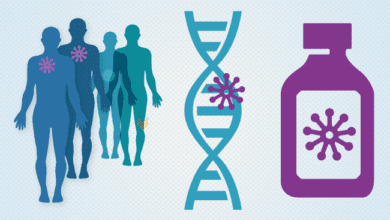When Will My IVF Specialist Let Me Know If the Treatment Worked?

In vitro fertilization, (IVF) treatments use assisted reproductive technology (ART) to help couples with fertility issues conceive. It is a standard and effective fertility treatment option overseen by an IVF specialist who helps patients understand the outcome of their treatment. Here are some indicators and potential timelines used for knowing if the IVF treatment was successful:
Post-IVF Waiting Period
After embryo transfer, a nine to 14-day waiting period typically precedes determining IVF treatment success. The length of the waiting period will depend on the individual fertility clinic. During this time, women may be hyper-aware of everything in their bodies. Mild bloating, cramping, and breast tenderness are common during the two-week wait.
An IVF specialist may instruct couples to refrain from sexual intercourse and strenuous exercise for the first days after transfer. Couples may be advised to modify certain lifestyle factors, such as avoiding drugs and alcohol and restricting high-impact exercises, immediately following embryo transfer.
Pregnancy Blood Testing
Approximately two weeks after the embryo transfer, a specialist will conduct a blood test to confirm if the IVF treatment was successful. The blood test measures the human chorionic gonadotropin (hCG) hormone, made by the placenta, to determine if the woman is pregnant. The hCG blood test is one of the most common tests for pregnancy after IVF.
A specialist will interpret the pregnancy test results and then inform the patient of the outcome. After a positive result, the specialist will monitor hormone levels that indicate a healthy pregnancy, like hCG, progesterone, and estrogen. A negative result suggests that the embryo did not attach to the uterus, or the eggs were not fertilized.
The specialist will adjust the treatment plan if the hormone levels indicate irregularities or if the implantation is unsuccessful. A specialist may also recommend treatments like intrauterine insemination (IUI) or suggest repeating the IVF process with additional doses of medication.
Pregnancy Ultrasound
An IVF specialist may use an ultrasound scan to confirm the embryo is attached to the uterus. Ultrasound scans use sound waves to generate images of the progression and health of a pregnancy. They can help check for fetal heartbeats, view embryo positioning, and potentially detect abnormalities.
During this period, the IVF specialist may inform the expecting couple how far along they are. They can also advise the couple on what should be done for a healthy pregnancy. Frequent follow-up ultrasounds may be performed to check placenta formation and monitor early pregnancy progress.
Monitoring and Follow-up Appointments
Regular checkups with the fertility specialist throughout the early weeks of pregnancy will help assess the health of the pregnancy. Checkups provide timely follow-up care and accurate monitoring to help couples get feedback on the success of the IVF treatment. With guidance and support from the specialist, couples may navigate the complexities of fertility treatment.
Couples may ask questions to get reassurance and seek advice on managing emotional stress and preparing for parenthood. Depending on the results of each checkup, the fertility specialist may recommend supplements and prenatal vitamins to help prevent complications.
After the early weeks of the pregnancy have passed, checkups and prenatal care with an obstetrician/gynecologist (OB/GYN) will then occur.
Assessing IVF Treatment Success
The success rates for IVF treatment can vary depending on the patient’s age, health, lifestyle, and number of cycles performed to develop viable embryos. IVF success rates per egg retrieval have been found to decrease with age. Couples should understand these factors to optimize IVF treatment.
IVF treatment success will depend on the number of embryos that survive and attach to the uterus. Chemical pregnancy describes non-viable pregnancy that ends in the first weeks. An IVF specialist monitors changes in hormone levels in the uterus to detect a chemical pregnancy.
During this time, specialists may support couples emotionally or refer them to a counselor. They may also provide resources and connections to support groups for additional assistance.
Navigating IVF Success: The Role of an IVF Specialist
The success of an IVF treatment journey requires a qualified IVF specialist. A specialist provides accurate information about the fertility process and has the skills to recommend treatment options. During the IVF treatment process, an IVF specialist can determine the success of treatment during the first few weeks after embryo transfer. Choose a qualified team of specialists to help keep you informed during your fertility journey.




